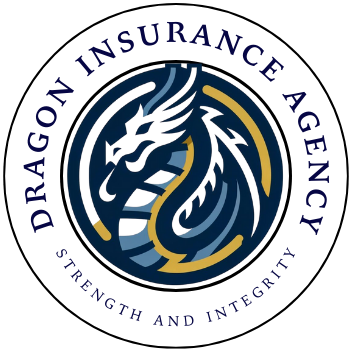Running a small business means wearing a dozen hats and taking on more responsibility than anyone really warns you about. One of those responsibilities includes getting bonded and insured, especially if you’re working in industries where clients expect that extra level of trust and security. Small business owners often ask how to get bonded and insured for a small business without realizing it’s both more doable and more necessary than they think. Dragon Insurance Agency explains it clearly: “Bonding protects your clients, insurance protects your business—both are essential if you plan to stick around.”
Steps to get bonded and insured
A freelance contractor, for example, landed a deal with a local municipality but hit a roadblock when asked to show proof of bonding and insurance—without it, the contract would have been pulled. That moment lit a fire, and he quickly worked through a licensed insurance agent to secure the necessary coverage and bonding to lock in the job. It’s not uncommon—many business owners realize they need these protections only after someone demands proof. But it’s better to get ahead of it before the opportunity disappears.
-
Identify if bonding or insurance is required for licensing or contracts
-
Contact licensed agents or brokers who specialize in small business services
-
Prepare personal credit info and business history to speed up the process
Types of business insurance coverage
Business insurance covers more than people assume. There’s liability for bodily injury, coverage for stolen equipment, or protection when a lawsuit shows up unexpectedly. According to the U.S. Small Business Administration (SBA), general liability is the most common and often a good starting point. Depending on the work being done, others like professional liability or commercial property insurance may be necessary.
-
General liability covers accidents, injuries, and property damage
-
Professional liability protects against negligence claims tied to services
-
Commercial property insurance helps replace or repair damaged equipment
What it means to be bonded
Bonding can be confusing—many assume it’s just another version of insurance, but that’s not quite accurate. A bond is a financial guarantee that your business will fulfill its contractual obligations, and if it doesn’t, the client gets reimbursed. The U.S. General Services Administration (GSA) breaks it down as a safeguard for customers, often required in industries like construction, janitorial services, and locksmithing. In short, it builds credibility.
-
Surety bonds guarantee contractual obligations are fulfilled
-
Fidelity bonds protect against employee theft or fraud
-
Public sector jobs often require bonds to be considered for bids
Insurance requirements for small business licenses
Getting bonded and insured isn’t just about preference—sometimes it’s the law. Most state and local governments require specific coverage types to issue business licenses or renew existing ones. Failing to meet those requirements can result in delays, fines, or denied applications. According to the U.S. Department of Labor, contractors in 32 states must show proof of insurance to register legally.
-
Research state and local requirements by industry type
-
Be prepared to submit insurance certificates with license applications
-
Renewal notices often come with updated bonding or coverage conditions

Costs of getting bonded and insured
Costs vary, and while some business owners expect sky-high prices, the reality is usually more manageable. The SBA estimates that most small business insurance policies fall between $400 and $1,500 annually, depending on the level of risk involved. Bond premiums typically range from 1% to 10% of the total bond amount, which can be influenced by credit history and job scope. Don’t let assumptions block smart decisions.
-
Businesses with higher risk exposure usually pay more
-
Strong credit and clean claim history can reduce bonding premiums
-
Bundling different coverages often leads to discounted pricing
Where to get bonded and insured
There’s no shortage of options when it comes to providers, but not all are created equal. Some specialize in high-risk businesses or work directly with small enterprises and startups. Dragon Insurance Agency recommends working with brokers who understand your industry and can connect you with insurers or bonding agencies that meet specific compliance needs. Local chambers of commerce and trade associations may also have resources or discounts.
-
National insurance providers often have dedicated small business teams
-
Independent brokers can help compare multiple coverage options
-
State-specific bond programs may be available for new or minority-owned businesses
When small businesses need bonds and insurance
Plenty of situations demand both bonding and insurance, especially when working with government contracts, landlords, or commercial clients. Sometimes it’s about legal compliance, but other times it’s about trust—clients are more likely to work with a business that shows proof of protection. Even industries like pet services or catering can require basic insurance depending on the client or venue.
-
Government contracts typically require bonds before awarding projects
-
Commercial landlords often demand liability coverage before signing leases
-
Clients hiring service-based businesses may ask for both bonding and insurance
Renewing and maintaining business coverage
Once a business is bonded and insured, it’s not a set-it-and-forget-it situation. Policies and bond agreements need regular attention. Many expire annually, and rates can change based on your claims history, credit, or growth. If you add services, move locations, or increase staff, those details need to be reflected in your coverage to avoid potential issues later.
-
Mark renewal dates to avoid accidental lapses in coverage
-
Report major business changes to your provider to stay compliant
-
Review policies annually to make sure limits still make sense

Key takeaways for how to get bonded and insured for a small business
-
Bonding and insurance protect both your business and your clients
-
Different industries require specific types of bonds and policies
-
Getting coverage can unlock contracts, licensing, and growth opportunities
-
Costs are influenced by industry risk, credit history, and coverage levels
-
Staying current with renewals ensures your business remains compliant and protected
FAQs about getting bonded and insured for a small business
Is bonding the same as insurance?
No. Bonding is a financial guarantee for your clients, while insurance protects your business against losses or legal claims.
Do all small businesses need bonding?
Not all, but many do. Industries that involve trust, such as cleaning services, construction, or security, often require bonding to win contracts.
Can a new business get bonded and insured right away?
Yes. Even new businesses can secure bonding and insurance if they meet certain credit or application standards, though premiums may be higher initially.
How long does it take to get bonded and insured?
It usually takes a few days to a couple of weeks. The timeline depends on the provider, industry, and whether additional documentation is needed.
Will my rates go down over time?
If your business avoids claims and maintains a strong financial record, your premiums may decrease at renewal. Clean records often lead to better rates.

